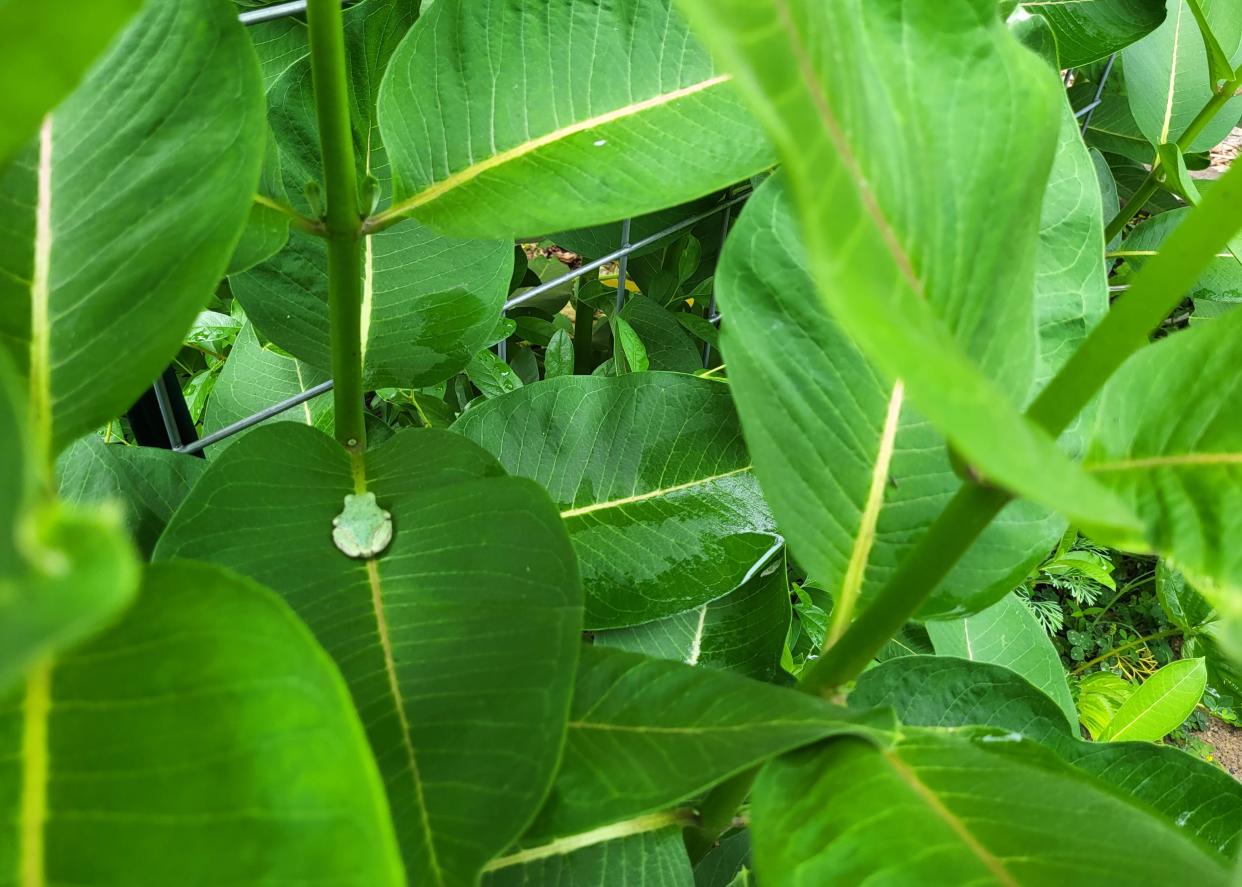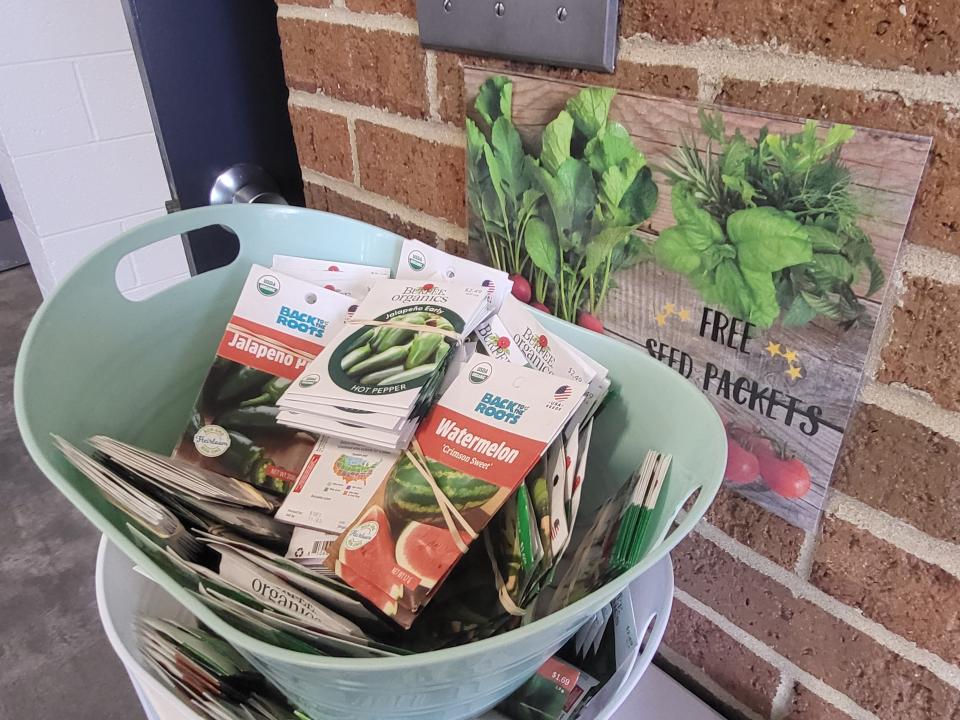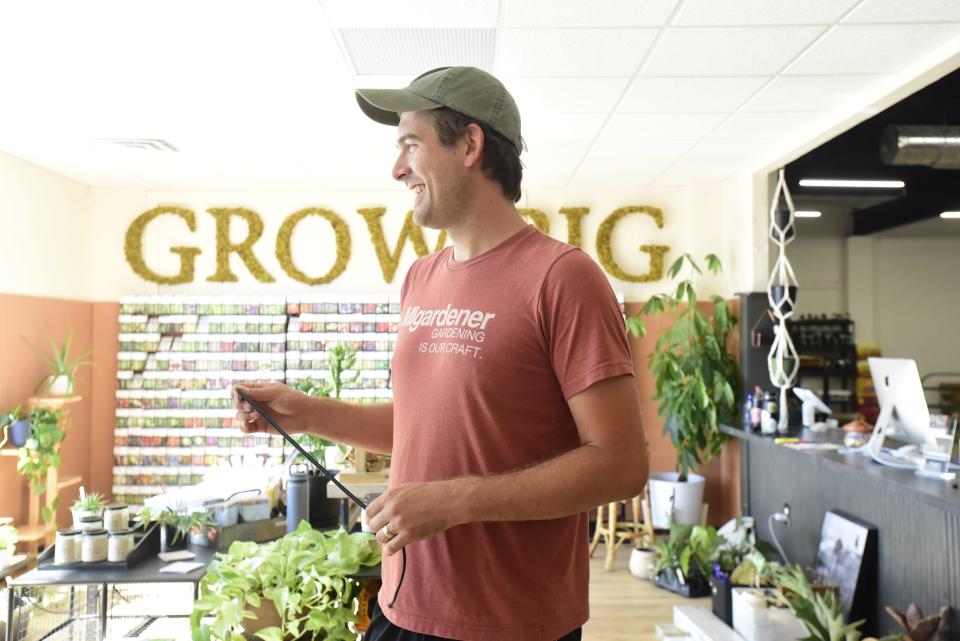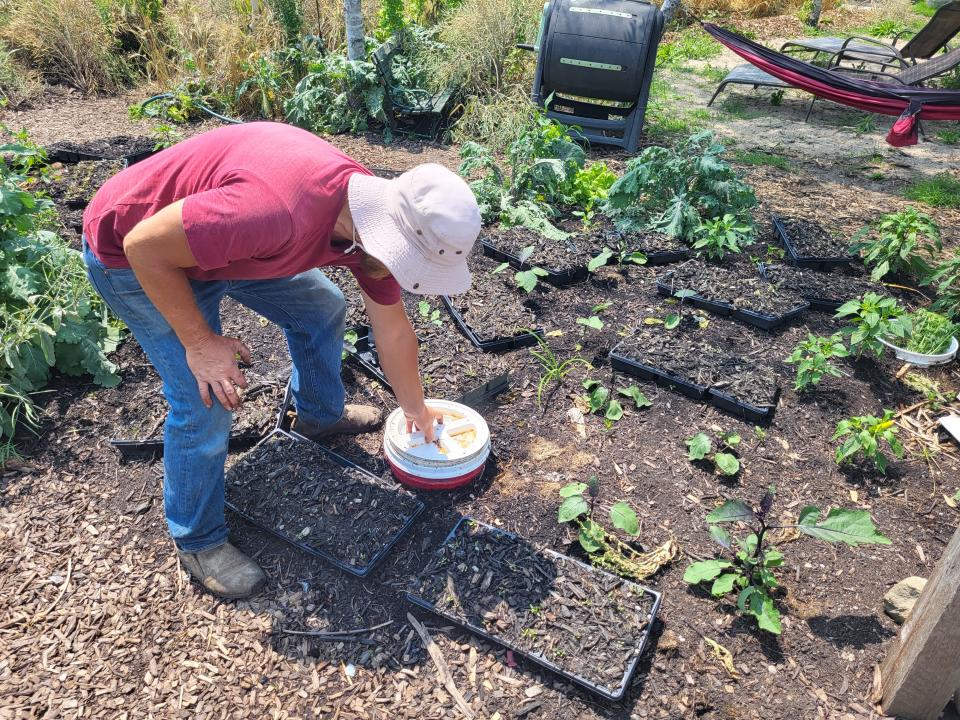Want to plant a garden at home? Here's a few tips to get started

The warmer the weather, the greener the thumb.
As the number of sunnier, spring days grow in number, local residents may be newly looking about their yards with a dream of gardening.
But where to start? What to plant?
When asked, a few gardening minds in St. Clair County shared key advice to get going and how to succeed — or have fun trying. And whether you’re interested in setting up a vegetable garden, digging in a new flower bed, or investing in native plants at home, there was one major common thread.
Why?
“Gardening is important because it helps connect us to the bigger picture,” said Brooke Hiller, a certified master gardener and restoration coordinator for the Friends of the St. Clair River, which primarily works with native plants. “It teaches us about patience, it teaches us about gratitude. I know all those things, they sound like cliched platitudes, but getting outside and learning about the environment you live in helps you feel connected to your community in a very important way.
“It keeps you physically active, it keeps you mentally active because if you’re interested in gardening, you’re always learning something new. And if you’re a perfectionist, it will teach you not to be because, inevitably, you’re going to run into mistakes."
First, have a plan — and a place
When it comes to getting started, there were a few basics that gardeners encouraged aspiring planters to grasp.
Things like where you’re going to put your garden at home.
Luke Marion, co-owner of MIGardener in St. Clair and an online content creator, said that for some people, it meant making sure the chosen spot had exposure to necessary sunlight — he recommended five to seven hours for a vegetable garden — and decent soil.
“Whether you’re growing in containers, in ground, or in a raised bed, whatever your garden style is, you need at least five to seven inches of soil,” he said. “That’s like the bare minimum for soil that you need. And the soil should be fairly loose and dark in color. If it’s really sandy or light gray, you’re going to have problems later on. So, it should be really rich.”
Heather Fagan, of Seed and Soul Society, said it was important for people to find a spot that worked for their needs and lifestyle — whatever they'll have time to care for. Narrow down what they have, she said, and get acquainted with their space.
“I think that’s one of the biggest problems people have getting started,” she said. “They think that there’s like a formula, and there’s not. Realistically, if you wanted to throw dirt in an old bowl, then you would just drill holes in it, you can do that.”
Julian Ruck, a vocal advocate for gardening who mans the Port Huron-based Polly’s Place, got a little more specific in his advice for future gardeners, and a lot of it was in prep.
They should gather compostable waste to use mulch to put in their garden beds, he said, which “in Port Huron, means little to no irrigation needed” — leaves, grass clippings, brown cardboard, woodchips, food scraps, and more. He also recommended an “easy garden bed method,” flipping sod over grass and adding mulch to a newly formed, raised bed with a path of woodchips.
Hiller said something similar for the patient gardener willing to wait and lay the groundwork come fall by putting all their fallen leaves over their selected garden area. Although native plants also needed adequate space and sunlight like anything else, she said the type of soil could be more forgiving.
“Here in St. Clair County, we have everything. One end of the spectrum is, ‘I live on the beach, and I have sand,’ or you can be like me out in Marysville and you’re just like solid clay,” Hiller said. “The cool thing about native plants is they are adapted to thrive in any soil condition. But the trick is you just need to find the right plant for the right place.”

Next, decide on seeds or plants, where to get them, and went to put them in the ground
Early on Tuesday, Port Huron resident Julia Gragg filled a small paper bag with seed packets — a few baskets of which were on display for free pickup at the city’s Palmer Park Recreation Center.
Joking she was a “see what happens” kind of gardener, she planned to share some watermelon seeds with her 6-year-old granddaughter who’s into gardening, while planting a variety herself at home.
“If you can get watermelon to grow from seeds, that’s pretty impressive for a little kid," she said. "But I always grow green beans, and I usually buy tomato plants. From seed, herbs, green beans, peas, lots of cucumbers. Pass them around to my neighbors.”
For those who aren’t sure where to start growing their own food, Emily May, a recreation coordinator for Port Huron, said this month, that the city still had plenty of free seed packets available for local families to pick up at the rec center, 2829 Armour St. The seeds, which May said remain from a Home Depot donation a couple of years ago, included anything from summer squash and melons to tomatoes, carrots, peas, and lettuce.
Still, the city’s variety was only one of many for those getting into gardening.
Overall, Ruck recommended newcomers buy seedlings from a professional greenhouse, sowing seeds as a supplement throughout the season.
On when to plant, he said gardeners should wait until nighttime temperatures are 50 degrees or higher, adding, “You might lose some to (the) cold if you transplant early. Risky business.”
Fagan said a rule of thumb was often to plant after Memorial Day, though Seed and Soul — the group was focusing on working with the local housing commission on gardens this year — wasn’t putting anything in the ground until the first week of June, citing an unpredictability in the seasons thus far.
Meanwhile, Marion advised people get started by the end of April if they wanted to begin from seed outside the garden before planting later on.
Both Marion and Fagan recommended simple plants like tomatoes, cucumbers, and peppers for interested beginners, and Marion said the chosen crop helps decide how much space a gardener needs.

“Every plant is different,” Marion said. “Like tomatoes need way more space than lettuce, for instance. And cucumbers, way more space than a tomato because they vine.”
Hiller said there are native seed libraries for people looking to obtain free seeds for their gardens at the Friends group’s Thumber Watershed Center in St. Clair and soon at the St. Clair County Community College library. When asked about type, she recommended a variety of go-to native plants for beginner gardeners “that support the widest variety of pollinators and small animals.”
Particularly, for those with smaller gardens in their yard at home, she commended less aggressive plants that won’t take up all the space. So, for example, not the Canada goldenrod, she said, but the showy goldenrod instead.
“That plant can go from part sun to full sun,” she said. “Then, we have even goldenrods for shade gardens, which are some of my favorite. Like blue-stemmed goldenrod and zigzag goldenrod. Those are gorgeous plants. And they kind of stay where you put them. They’re not super big, they’re a little bit smaller. And then, if you have a moist spot in full sun, Riddell’s goldenrod is also a quite beautiful plant.”
Additionally, instead of the bright purple New England aster, Hiller recommended the aster cultivar or smooth, blue aster. With native grasses, she said some don’t get too tall but can add depth to a garden — on top of another benefit.
“Native grasses and sedges that don’t get very tall can give your garden full-year interest, so it doesn’t look like a sad little patch of nothing in the wintertime,” she said. “They actually look really beautiful under a layer of snow, and they turn colors in the fall.”

Learn all the information you can
The answers to a lot of other questions are often just a Google search away, but individual gardeners have their own recommendations on where to go for additional resources.
Marion said a lot of the best information comes on the back of seed packets. Fagan recommended Marion’s MIGardener, which included an online store and a large library of niche content on their YouTube channel, as well as public organization like Michigan State University Extension.
Ruck pointed to listening to Jesse Frost of the No-Till Growers podcast and YouTube channel, as well as checking out other gardeners like Huw Richards, Charles Dowding, “Epic Gardening” and more online.
Hiller said Friends of the St. Clair River are available for native plant questions. She can be reached at [email protected]. Additionally, she said a good way to learn more about native plants and sustainable gardening practices is to volunteer, citing upcoming events with the group.
From 10 a.m. to noon every Tuesday from May 7, Hiller said they work on invasive species management and garden maintenance at the Blue Water River Walk. Then, from 8:30 a.m. to noon on Saturdays, May 11 and 25, they’re holding a spring garden cleanup day and a planting day, respectively, at Pine Grove Park. There, they’ll later work on managing the native perennial beds from 10 a.m. to noon every other Thursday starting June 6.
Contact Jackie Smith at (810) 989-6270 or [email protected].
This article originally appeared on Port Huron Times Herald: Want to plant a garden at home? Here's a few tips to get started
